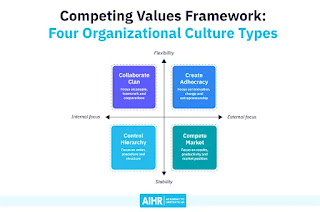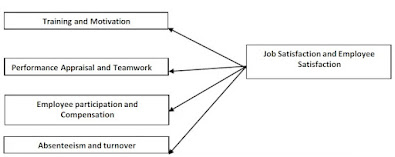Compensation & Benefits
What is Compensation & Benefits
Compensation & Benefits refers
to what worker get in return of labour that is salary, monetary as well as non-monetary
privileges provided by the employer in an organization.
C&B is a vital tool to attract
best fit to the organization, motivate and retain the employees. It works in a
way Better is the C&B better is the performance & retention.
Objectives of the C&B
·
To control the incurring cost of Organization.
·
Ensure legal provisions are adhered.
·
To sustain and enhance employee motivation.
·
To benchmark the Company.
·
Attract right candidates.
·
Retention of employees.
·
Justify the work done by employee by good pay.
Components of C&B
·
Fixed Pay
Fixed pay is a sum of money an employer pay employee for their work done in a particular month excluding bonus, overtime, or incentives. Legal factors such as minimum wage, statutory pay, industry standard could determine the fixed pay.
·
Variable Pay
Variable is differed
based on Company as well as Employee’s performance. Usually, it is paid once in
a year.
·
Equity Pay
Some companies
include stock options as a reward based on employee performance, they allocate
shares to the employees, or they sell the market share with discounted rate. However,
these stocks vest only after an employee spend certain period in the Company.
Culture Based C&B Strategy
Employees are expected to reward
how employees are uphold the Organization values and beliefs in other words Company
Culture.
 |
| Figure 1. Culture Based Compensation Strategy |
Steps to create a culture-based
Compensation Strategy
1. Understand
your Organization Culture
It is imperative
to understand the Organization culture to align the C&B strategy.
The graphic below shows four Organizational culture types.

Figure 2. Competing Values Framework
2. Identify
the behavior to promote your desired culture
If compensation
strategy in linked to culture different reward will be considered to different
culture types. Thus, to determine the culture Company need to fix and encourage
compensation strategies to sustain the culture.
3. Determine
your direct and indirect compensation elements
Once the clear
link is established between Culture and Compensation, it is time to decide what
goes into your total reward package.
References
Azmi, W., 2021. startuphrtoolkit.
[Online]
Available at: https://www.startuphrtoolkit.com/compensation-and-benefits-in-hrm/
[Accessed 04 05 2022].
Lancu, S., 2022. Academy to Innovate HR. [Online]
Available at: https://www.aihr.com/blog/compensation-strategy/
[Accessed 04 05 2022].
Wooll, M., 2021. Betterup. [Online]
Available at: https://www.betterup.com/blog/compensation-and-benefits#:~:text=Compensation%20is%20a%20direct%20payment,or%20partially%20exempted%20from%20taxation.
[Accessed 04 05 2022].



As discussed, managing employee rewards and benefits is a very important role of HR managers. When employees are properly rewarded, recognised and appreciated, it will increase their morale and engagement levels. This will in turn increase productivity. When employees are happy they are more committed which will reduce absenteeism and turnover levels. Good article.
ReplyDeleteCompensation and benefits are the most important tools for a company to achieve their corporate mission. employee retention is very important to achieve said goals. we can motivate and retain employees by giving their incentives. in this article you have explained objectives and its component in deeply. good one all the best
ReplyDeleteManaging employee rewards and benefits is an essential requirement to increase employee productivity.It will increase employers outcome which has a direct impact to organizational performance.
ReplyDeleteYou have clearly described the topic .Good job.
Employee loyalty and motivation to work and perform increases as compensation and benefits are increased. Companies that pay lower compensation have greater staff turnover and lower productivity. Therefore it affects organizational performance. All the best!!
ReplyDeleteCompensation and benefits are an important tool for attracting the finest personnel, motivating them, and keeping them. It kind of works. Higher C&B, better performance, and better retention.Good article !!
ReplyDeleteEmployee morale and engagement will increase when they are properly rewarded and recognized. Employee retention is critical because happy employees are more dedicated, which reduces turnover. good article
ReplyDeleteC&B is vital as mentioned, it is also equally important to to achieve employee satisfaction which leads to efficiency and productivity.
ReplyDeleteProviding proper compensation and benefits to employees is essential in retaining and recruiting talented and employees to an organization and HRM is key in managing the company HR policies. As mentioned in this article, compensation and benefits is crucial in developing a desired organizational culture. For example, providing incentives is a popular C&B tool used in market cultures to increase productivity of its employees. Great article. Well done.
ReplyDelete